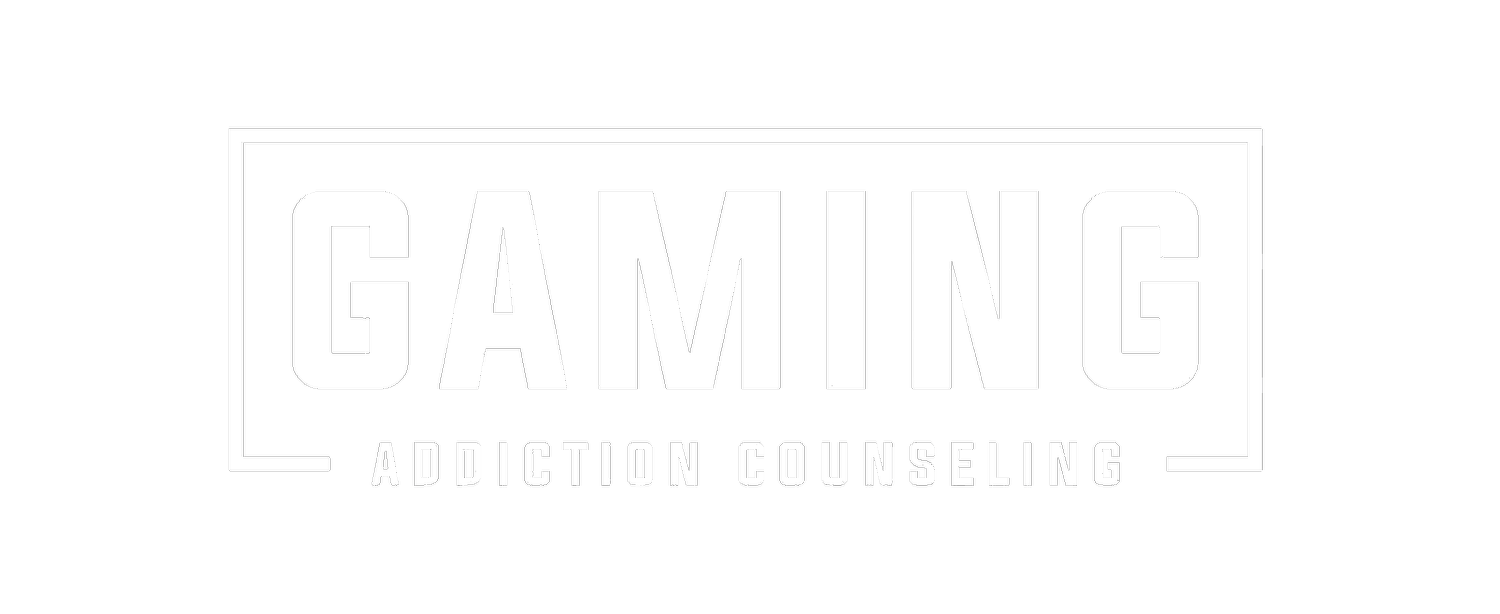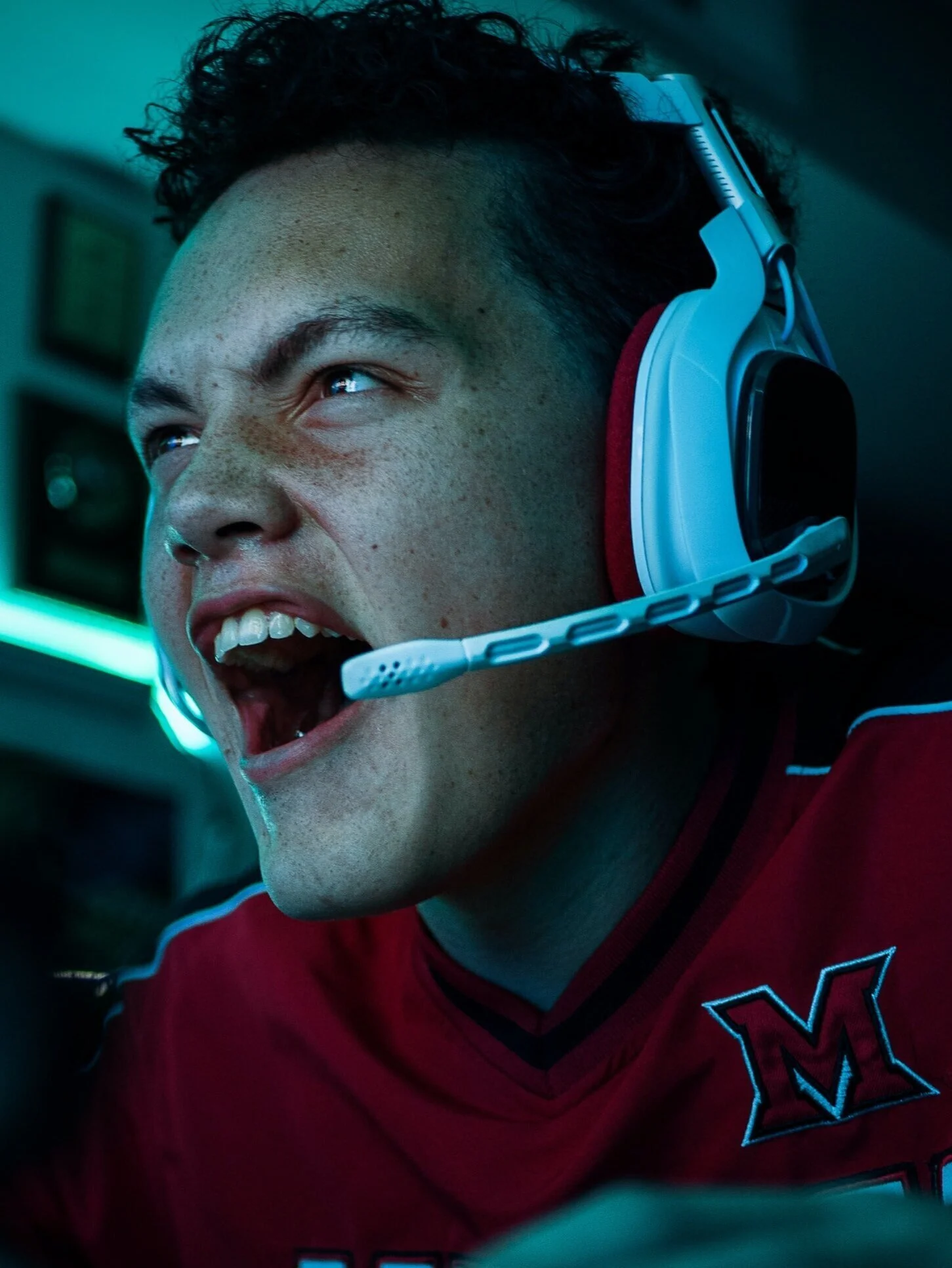Cycle of Gaming From 2 Perspectives
The Cycle of Gaming From 2 Perspectives
For those who do not understand the cycle of gaming, it is like a torrent that continually sucks the gamer in. The cycle is like that of drug addicts. I take my clients through the cycle step-by-step to bring some of the unconscious actions to the surface, and break the cycle. In the same way, I want to shed some light on the inner turmoil of the addicted gamer.
First, I like looking at the addiction cycle from the perspective from an outsider (e.g. parent/partner), and then from the addict’s point of view. The two perspectives give a complete picture, and they will be both told as stories:
OUTSIDER (Parents Point of View and Child Gaming Addict)
Initially, the parents will notice that their child (or teen) is spending a ton of time in front of the screen. The parents will think nothing about it, until the child stops spending as much time with their friends, will be late to meals, and decline requests to go out with the rest of the family. The parents will then point out the amount of time the child spends playing video games, “Hey, we noticed you really like playing video games.” The child responds, “Yeah, <insert name of game here> is really fun…” Parents try to find out more, “What is the game about?” Child gives a detailed description of the game with obvious interest. The parents know the child likes playing but does not fully understand why the child likes playing the game.
As birthdays, Christmas’ and other holidays roll around, the parents buy consoles and video games for the child. The parents then notice the child becoming more distant from the family. The parents then become aware the child has not been turning in homework, and their test grades begin falling.
The parents then confront the child, “We just saw your progress report. You haven’t been turning in your homework assignments. Until you make up your homework, you don’t get to play any games. You’re grounded!” The child will be noticeably upset and respond with excuses, “The teacher isn’t being fair. She never gives us enough time to finish the homework…” The parents then become more watchful over the son’s progress in school. Soon, small arguments start flaring up between the parents and child; arguments that are petty. The child starts lying about doing homework and studying which causes the parents to not trust the child. The parents then feel like they need to micromanage their child. Every time the child is alone in their room, the parents then wonder if the child is “wasting time” playing video games. The child then starts avoiding the parents, and the parents do not understand why. The parents then feel stuck between removing the games, and having the child hate them, OR allow the child to play, and the child falling more behind in school. Then, a cycle begins where the parents take away the games when the child misbehaves, arguments ensue with the child, the child shows some positive behaviors, they get back the games, and the cycle starts again. The parents feel frustrated and are not sure what to do.
GAMING ADDICT (Child Gaming Addict Point of View)
The child plays a video game at a friend’s house, sees a commercial, or hears about it. After the experience of playing a video game for the first time, the child thinks about the next time he will play with anticipation. The sounds, control, sense of achievement, and beckoning mastery of the game become a siren song. The immediate fun, and engagement soon overshadows any contentment received from completing long-term projects. Video game accomplishments and progress are talked about in friend groups. Video games have now become more than entertainment; they have become part of the child’s identity.
Soon, any free time automatically goes toward playing video games. The child’s mood becomes heavily dependent on what happens while gaming. A winning streak can put them in an ecstatic mood, while losing can feel like a swing at their ego. Activities outside of playing video games become a nuisance. Meals with the family, hanging out with friends, schoolwork, and even eating and sleep become a roadblock to being back in the gaming world. Even more, all responsibilities create anxiety and stress that is difficult for the child to cope with. The immediate response to deal with the stress and anxiety is to play video games as the distraction temporarily removes the negative feelings.
After the parents pester the child about his missing homework, the child makes excuses to cover himself, yet, he still values the relationship with his parents, and does not want them to be disappointed with him. The thought to start his homework comes up, and the anxiety/stress sets in. “Well, I can play one round, and then I’ll start on my homework.” The child tells himself. The child knows that this is a way to rationalize his game playing, and he feels guilty on an unconscious level. He continues to say to himself that he will do it a little later. Several hours later, the child finally decides to start his homework. The guilt and the “should” in his mind finally tell him to turn off the game. However, the child is fatigued, and his mind feels like it is swimming in an alternate reality. It is late at night now, and the child is having difficulty focusing. The stress is now beyond what the child can deal with, and he thinks to himself, “I can do it tomorrow”.
Years into this, the parents are now watching the child like a hawk, and the child feels like his parents are waiting for to not turn in another homework assignment, or get a mid-level grade on another test. The child is anticipating more pressure and another argument soon, so he goes back into gaming. However, the child no longer enjoys gaming. He does it to alleviate stress, but he knows that gaming is the thing that is causing him the stress and anxiety. The guilt, shame, and fear are too much for the child. He feels like he has disappointed his parents by lying, and not sticking to his schoolwork. He does not feel as though he can depend on them for help with this problem. At a base level, the child knows that gaming is not good for them, and is sick of playing, and wants more for himself, but doesn’t know how to stop.
What Can Be Done?
Since the child and parents are unable to communicate, both parties are left assuming what the other is thinking and feeling. Many parents are unequipped to handle these kinds of issues without education, or a third party. If gaming has become a huge problem for you or your family, please contact me. I personally went through this with my family, and I understand the lost opportunities and frustration that come with gaming addiction.
Joshua Garth
Phone: (714) 367-4795
Email: joshgarth4therapy@gmail.com


